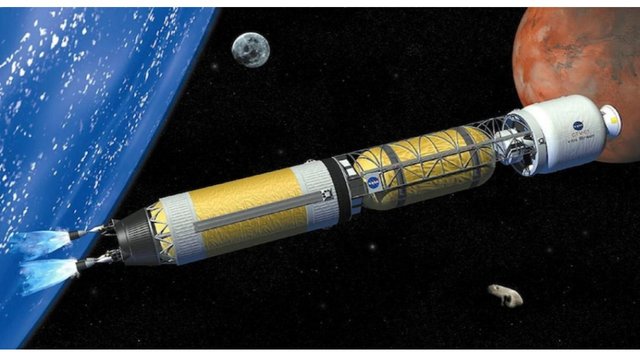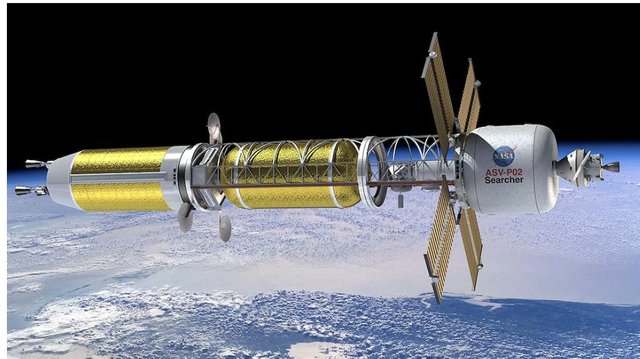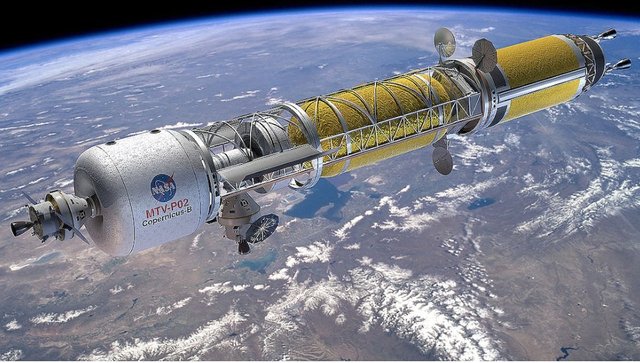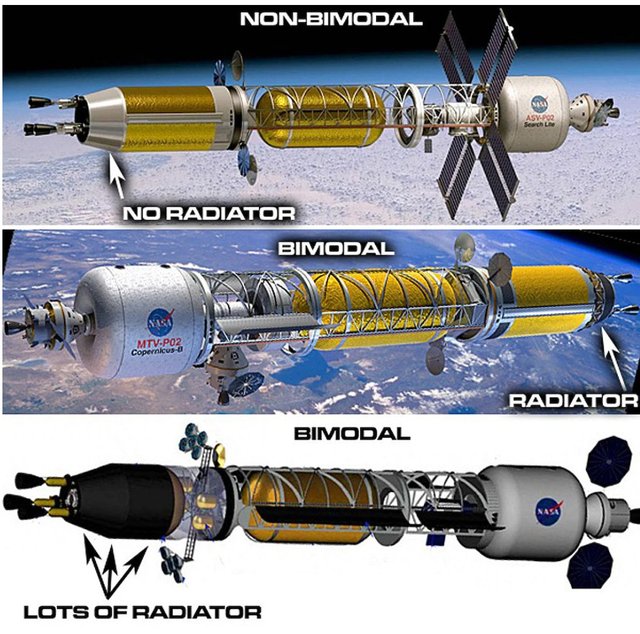
This is the design of NASA's nuclear rocket which will reach Mars in just 45 days. (Photo: NASA)
NASA has claimed that in the next few years, it will take people to Mars in just 45 days. For this, he is making a rocket flying with nuclear fuel. This rocket will be made in the next decade. China is constantly challenging America in the space mission. That's why this rocket is necessary.
America is making such a rocket that will reach Mars in just 45 days. Now it takes at least a year. In fact, China is constantly challenging America and the whole world in space missions. In such a situation, America wants to go beyond that. NASA has made a plan that it will make a rocket flying with nuclear fuel. Which will take spacecraft or humans to Mars in just 45 days.
Humans have so far been able to reach the Lower Earth Orbit (LEO) or the Moon. But the astronaut of any country has not reached any other planet. But not only rockets but many new technologies will be required to reach Mars. Like- Life Support System, Radiation Shielding, Power and Propulsion System etc.

When it comes to power and propulsion system, then the biggest source is considered to be nuclear fuel i.e. Nuclear Fuel. NASA and the Soviet space program spent decades developing nuclear propulsion systems. NASA has started its nuclear rocket program only a few years ago. He has started work on Bimodal Nuclear Thermal Rocket (BNTR).
NASA is working on two different programs
There are two systems in BNTR, the first is the Nuclear Thermal Program and the second is the Nuclear Electric Program. Both these programs are such that according to the current calculations, they will complete the distance from Earth to Mars in 100 days. But in future it can be reduced to 45 days. NASA has started a new program for this year. Its name is NASA Innovative Advanced Concepts (NIAC). In its first phase, NASA will make a nuclear rocket.
Will take a lot of brains, modern technology and money
NASA says that it will make a nuclear powered rocket running with the help of wave rotor topping cycle. Which will reach Mars in just 45 days. Head of the Hypersonics Program Area at the University of Florida, Prof. Ryan Gosse says that this rocket will be a miracle in the world of space missions. With this, you will be able to cover long distances of space in minimum time. But it will take a lot of mind, technology and money to make it.

In Nuclear Thermal Propulsion (NTP), the nuclear reactor will heat the liquid hydrogen propellant. This will create ionized hydrogen gas. That is plasma. Due to which it will be channelized through the propulsion system and extracted from the nozzle. When this plasma comes out of the nozzle, it will accelerate the rocket. The US Air Force and the Atomic Energy Commission first attempted to build such a propulsion system in 1955 during Project Rover.
The project was halted after the closure of the Apollo program
When this project reached in 1959, it was changed to Nucleon Engine for Rocket Vehicle Application (NERVA). It was a solid core nuclear reactor. Its testing was successful. When the Apollo missions were announced in 1973, NASA's funding was greatly reduced. Due to this the NERVA project was stopped.
On the other hand, the Soviet Union had made its NTP concept. He developed this technique between 1965 and 1980. But the program did not last long. It had to be shut down after a ground test. Now let's talk about the other way. Which is called Nuclear Electric Program (NEP). In this, it is said to generate electricity through nuclear fuel. Which will help in making hall-effect thruster ie ion engine.
Nuclear-electric rockets will also be made in the future
Under NEP, the ion engine will create an electromagnetic field. Which will work to propel the rocket forward by creating inert gas like xenon. The initial idea on this project came during Project Prometheus. This project started between 2003 and 2005. Both NTP and NEP systems are considered modern and secure. Their fuel efficiency is better. That means more distance can be covered in less fuel.

At present, the power of NEP is slightly less as compared to NTP and conventional rockets. But it can be improved in future. It can be made better. According to Ryan Gosse, the NTP project is the best for nuclear rockets. It will be 30 to 40 percent more beneficial than the propulsion system of conventional rockets.